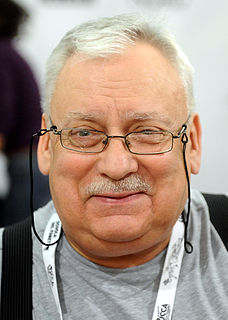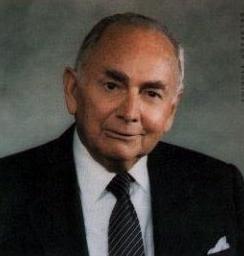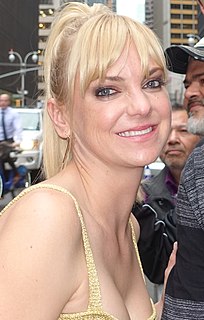Top 1200 Vanity Quotes & Sayings - Page 20
Explore popular Vanity quotes.
Last updated on April 20, 2025.
It was this feminine conspiracy which made Southern society so pleasant. Women knew that a land where men were contented, uncontradicted ans safe in possession of unpunctured vanity was likely to be a very pleasant place for women to live. So, from the cradle to the grave, women strove to make men pleased with themselves, and the satisfied men repaid lavishly with gallantry and adoration. In fact, men willingly gave ladies everything in the world except credit for having intelligence.
Paper money is like dram-drinking, it relieves for a moment by deceitful sensation, but gradually diminishes the natural heat, and leaves the body worse than it found it. Were not this the case, and could money be made of paper at pleasure, every sovereign in Europe would be as rich as he pleased. But the truth is, that it is a bubble and the attempt vanity. Nature has provided the proper materials for money: gold and silver, and any attempt of ours to rival her is ridiculous.
I manage because I have to. Because I've no other way out. Because I've overcome the vanity and pride of being different, I've understood that they are a pitiful defense against being different. Because I've understood that the sun shines differently when something changes. The sun shines differently, but it will continue to shine, and jumping at it with a hoe isn't going to do anything.
The object of geometry in all its measuring and computing, is to ascertain with exactness the plan of the great Geometer, to penetrate the veil of material forms, and disclose the thoughts which lie beneath them? When our researches are successful, and when a generous and heaven-eyed inspiration has elevated us above humanity, and raised us triumphantly into the very presence, as it were, of the divine intellect, how instantly and entirely are human pride and vanity repressed, and, by a single glance at the glories of the infinite mind, are we humbled to the dust.
Everyone wants rather to be pleasing to women and that desire is not altogether, though it is very largely, a manifestation of vanity. But one cannot aim to be pleasing to women any more than one can aim to have taste, or beauty of expression, or happiness; for these things are not specific aims which one may learn to attain; they are descriptions of the adequacy of one's living. To try to be happy is to try to build a machine with no other specification than that it shall run noiselessly.
... do not listen to vain and empty talk, in which the majority of world-loving people spend their time, and do not take pleasure in it. For the law says: 'You shall not raise false reports' (Ex. 23:1). Solomon says: 'Remove far from me vanity and lies' (Prov. 30:8). The Lord said: 'But I say to you, every idle word that men shall speak they shall give account thereof in the day of judgment' (Mt. 12:36).
Criticism is a study by which men grow important and formidable at very small expense. The power of invention has been conferred by nature upon few, and the labour of learning those sciences which may, by mere labour, be obtained, is too great to be willingly endured; but every man can exert some judgment as he has upon the works of others; and he whom nature has made weak, and idleness keeps ignorant, may yet support his vanity by the name of critic.
The best way to sell yourself to others is first to sell the others to yourself. Check yourself against this list of obstacles to a pleasing personality: interrupting others; sarcasm; vanity; being a poor listener; insincere flattery; finding fault; challenging others without good cause; giving unsolicited advice; complaining; attitude of superiority; envy of others' success; poor posture and dress.
I think it is every woman's duty to make herself as attractive as her time and means permit. After all, there you are, in your person- a living symbol of the progress of art, science and imagination. To be as attractive as we can be is almost a civic duty; there are so many sad and ugly things in the world that I think women should say to themselves humbly, not with vanity, 'I will try to be as pretty as I can, so that when people look at me, they will feel refreshed. I will make an effort to be easy on the eye.'
To his sister-in-law: What a contrast between us! You live a warm and glowing life, surrounded by loved ones whom you care for and who care for you; you are anchored in contentment. I drift about without rudder or compass, a wreck on the sea of life; I have no memories to cheer me, no pleasant illusions of the future to comfort me, or about me to satisfy my vanity. I have no family to furnish the only kind of survival that concerns us, no friends for the wholesome development of my affections, or enemies for my malice.
Another sex worker and writer I respect put it this way: she said that as a writer, you're not about pleasing people, and as a sex worker it's all about pleasing people. It's all about creating this fantasy. I still feel like as a writer you actually do have put on a show. You can't just hand over your notes. And there is a degree to which you are appealing to the reader's vanity, whether you tell yourself you're doing that or not.
As an architect it is very important that you distinguish between different realities. There's the reality of the drawing and the reality of the building. So one could say, or at least it is the common belief that architecture has to be built; I always denied that, because ultimately it is based on an idea. I don't ever need a building to verify my idea. Of course, what with a building is more its vanity and actual physical experience. But I anticipate; I wouldn't even build it if I could not anticipate how it would be.
A big success can be very confusing if it comes too early in your life. When you are young, you are more vulnerable to vanity. I was 36 when I wrote The Shadow of the Wind and the success of it was very gradual. If you have this kind of success straight off, I think there is a danger you can become an idiot, because you don't have a perspective. It hasn't changed me a lot. I fly first class now. But those things don't change you. If I am pretentious, I was before, I haven't changed. The only thing is, I am less anxious now.
The vanity of existence is revealed in the whole form existence assumes: in the infiniteness of time and space contrasted with the finiteness of the individual in both; in the fleeting present as the sole form in which actuality exists; in the contingency and relativity of all things; in continual becoming without being; in continual desire without satisfaction; in the continual frustration of striving of which life consists. . . Time is that by virtue of which everything becomes nothingness in our hands and loses all real value.
To be beneficent when we can is a duty; and besides this, there are many minds so sympathetically constituted that, without any other motive of vanity or self-interest, they find a pleasure in spreading joy around them, and can take delight in the satisfaction of others so far as it is their own work. But I maintain that in such a case an action of this kind, however proper, however amiable it may be, has nevertheless no true moral worth, but is on a level with other inclinations. . . . For the maxim lacks the moral import, namely, that such actions be done from duty, not from inclination.
What do you believe? I believe that the last and the first suffer equally. Pari passu. Equally? It is not alone in the dark of death that all souls are one soul. Of what would you repent? Nothing. Nothing? One thing. I spoke with bitterness about my life and I said that I would take my own part against the slander of oblivion and against the monstrous facelessness of it and that I would stand a stone in the very void where all would read my name. Of that vanity I recant all.
I think people are naturally good, I see it every day. Look at this restaurant. No one's causing anybody any trouble in here. We're all sitting, respecting each other's space, we're keeping our voices down, we're saying "please" and "thank you" - those are acts of generosity that we commit on a second by second basis that we don't give ourselves enough credit for. There's a lot of kindness in this world, we're just such vain creatures; our vanity can be used against us so easily. We're like dogs, hairless dogs.
I wanted at one point to act, which is a weird thing for men to want to do. It's a very vain profession. I don't mind women who want to act. That's fine. It's odd that men want to act, in that there's still a degree of vanity associated with it. It's like, "Put on some makeup, make me look good. Okay, now I'm going to roll my shoulder." Part of me still feels like, "Wow, that's weird for a man to do."
I do understand what love is, and that is one of the reasons I can never again be a Christian. Love is not self denial. Love is not blood and suffering. Love is not murdering your son to appease your own vanity. Love is not hatred or wrath, consigning billions of people to eternal torture because they have offended your ego or disobeyed your rules. Love is not obedience, conformity, or submission. It is a counterfeit love that is contingent upon authority, punishment, or reward. True love is respect and admiration, compassion and kindness, freely given by a healthy, unafraid human being.
Rare almost as great poets, rarer, perhaps, than veritable saints and martyrs; are consummate men of business. A man, to be excellent in this way, requires a great knowledge of character, with that exquisite tact which feels unerringly the right moment when to act. A discreet rapidity must pervade all the movements of his thought and action. He must be singularly free from vanity, and is generally found to be an enthusiast who has the art to conceal his enthusiasm.
Anxieties about ourselves endure. If our proper study is indeed the study of humankind, then it has seemed-and still seems-to many that the study is dangerous. Perhaps we shall find out that we were not what we took ourselves to be. But if the historical development of science has indeed sometimes pricked our vanity, it has not plunged us into an abyss of immorality. Arguably, it has liberated us from misconceptions, and thereby aided us in our moral progress.
Pride can go without domestics, without fine clothes, can live in a house with two rooms, can eat potato, purslain, beans, lyed corn, can work on the soil, can travel afoot, can talk with poor men, or sit silent well contented with fine saloons. But vanity costs money, labor, horses, men, women, health and peace, and is still nothing at last; a long way leading nowhere.--Only one drawback; proud people are intolerably selfish, and the vain are gentle and giving.
Vanity is so frequently the apparent motive of advice that we, for the most part, summon our powers to oppose it without very accurate inquiry whether it is right. It is sufficient that another is growing great in his own eyes at our expense, and assumes authority over us without our permission; for many would contentedly suffer the consequences of their own mistakes, rather than the insolence of him who triumphs as their deliverer.
…the samurai ethic is a political science of the heart, designed to control such discouragement and fatigue in order to avoid showing them to others. It was thought more important to look healthy than to be healthy, and more important to seem bold and daring than to be so. This view of morality, since it is physiologically based on the special vanity peculiar to men, is perhaps the supreme male view of morality.
Surely in much talk there cannot choose but be much vanity. Loquacity is the fistula of the mind,--ever-running and almost incurable, let every man, therefore, be a Phocion or Pythagorean, to speak briefly to the point or not at all; let him labor like them of Crete, to show more wit in his discourse than words, and not to pour out of his mouth a flood of the one, when he can hardly wring out of his brains a drop of the other.
Any woman may act the part of a coquette successfully who has the reputation without the scruples of modesty. If a woman passes the bounds of propriety for our sakes, and throws herself unblushingly at our heads, we conclude it is either from a sudden and violent liking, or from extraordinary merit on our parts, either of which is enough to turn any man's head who has a single spark of gallantry or vanity in his composition.
Before The World Was Made If I make the lashes dark and the eyes more bright and the lips more scarlet, or ask if all be right from mirror after mirror, no vanity's displayed: I'm looking for the face I had before the world was made. What if I look upon a man as though on my beloved, and my blood be cold the while and my heart unmoved? Why should he think me cruel or that he is betrayed? I'd have him love the thing that was before the world was made.
He resented such questions as people do who have thought a great deal about them. The superficial and slipshod have ready answers, but those looking this complex life straight in the eye acquire a wealth of perception so composed of delicately balanced contradictions that they dread, or resent, the call to couch any part of it in a bland generalization. The vanity (if not outrage) of trying to cage this dance of atoms in a single definition may give the weariness of age with the cry of youth for answers the appearance of boredom.
She died on a windy gray day in March when the sky was full of darting crows and the world lay prostrate and defeated after winter. Peter Lake was at her side and it ruined him forever. It broke him as he had not ever imagined he could have been broken. He would never again be young, or able to remember what it was like to be young. What he had once taken to be pleasures would appear to him in his defeat as hideous and deserved punishments for reckless vanity.
There was about all the Romans a heroic tone peculiar to ancient life. Their virtues were great and noble, and these virtues madethem great and noble. They possessed a natural majesty that was not put on and taken off at pleasure, as was that of certain eastern monarchs when they put on or took off their garments of Tyrian dye. It is hoped that this is not wholly lost from the world, although the sense of earthly vanity inculcated by Christianity may have swallowed it up in humility.
Let the writer take up surgery or bricklaying if he is interested in technique. There is no mechanical way to get the writing done, no shortcut. The young writer would be a fool to follow a theory. Teach yourself by your own mistakes; people learn only by error. The good artist believes that nobody is good enough to give him advice. He has supreme vanity. No matter how much he admires the old writer, he wants to beat him.
A critical assumption is sometimes made that [Grisham, Clancey, Crichton & myself] have access to some mystical vulgate that other (and often better) writers cannot find or will not deign to use. I doubt if this is true. Nor do I believe the contention of some popular novelists... that thier success is based on literary merit -- that the public understands true greatness in ways the tight-a**ed, consumed-by-jealousy literary establishment cannot. This idea is ridiculous, a product of vanity and insecurity.
Deception, flattering, lying, deluding, talking behind the back, putting up a false front, living in borrowed splendor, wearing a mask, hiding behind convention, playing a role for others and for oneself -- in short, a continuous fluttering around the solitary flame of vanity -- is so much the rule and the law among men that there is almost nothing which is less comprehensible than how an honest and pure drive for truth could have arisen among them.
I just wanted to honor who Emily was. She's just a strong woman. Through my journey of playing her, I found a lot of strength, and I think that I've changed, as a female, in the way that I carry myself. To go through something traumatic, like getting your face scarred, it made me analyze vanity a lot. When you have a little pimple and you're like, "Oh, my god, there's an alien on my face!," you feel like it's magnified.
The burning conviction that we have a holy duty towards others is often a way of attaching our drowning selves to a passing raft. What looks like a giving hand is often a holding on for dear life. Take away our holy duties and you leave our lives puny and meaningless. There is no doubt that in exchanging a self-centered for a selfless life we gain enormously in self-esteem. The vanity of the selfless, even those who practice utmost humility, is boundless.
Even the wisest of mankind cannot live by reason alone; pure arrogant reason, denying the claims of prejudice (which commonly are also the claims of conscience), leads to a wasteland of withered hopes and crying loneliness, empty of God and man: the wilderness in which Satan tempted Christ was not more dreadful than the arid expanse of intellectual vanity deprived of tradition and intuition, where modern man is tempted by his own pride.
It has been remarked that when one passes among the patients of the psychiatric ward, he encounters among the several sufferers every aspect of normal personality in morbid exaggeration. ... As one passes through the modern centers of enterprise and of higher learning, he is met with similar autonomies of development. ... The scientist, the technician, the scholar, who have left the One for the Many are puffed up with vanity over their ability to describe precisely some minute portion of the world. Men so obsessed with fragments can no more be reasoned with than other psychotics.
The need for sociability induce man to be in touch with his fellow men. However, this need might not ("ne saurait", Fr.) find its full (or complete) satisfaction in the conventional (or superficial, - "conventionnel", Fr.) and deceitful world, in which (or where) everyone is mainly (or mostly) trying to assert oneself in front of others ("devant les autres", Fr.), to appear, and hoping to find in society ("mondaine", Fr.) relationships some advantages for his interest and vanity (or vainglory or conceit", Fr).
There is nothing gutsier to me than a person announcing that their story is one that deserves to be told, especially if that person is a woman. As hard as we have worked and as far as we have come, there are still so many forces conspiring to tell women that our concerns are petty, our opinions aren’t needed, that we lack the gravitas necessary for our stories to matter. That personal writing by women is no more than an exercise in vanity and that we should appreciate this new world for women, sit down, and shut up.
And though it be their sin and vanity that is the cause, it is nevertheless your sin to be the unnecessary occasion: for you must consider that you live among diseased souls. And you must not lay a stumblingblock in their way, nor blow up the fire of their lust, nor make your ornaments their snares; but you must walk among sinful persons, as you would do with a candle among straw or gunpowder; or else you may see the flame which you would not foresee, when it is too late to quench it.
The late John Jacob Astor, a personage little given to poetic enthusiasm, had no hesitation in pronouncing my first grand point to be prudence; my next, method. I do not speak it in vanity, but simply record the fact, that I was not unemployed in my profession by the late John Jacob Astor; a name which, I admit, I love to repeat, for it hath a rounded and orbicular sound to it, and rings like unto bullion. I will freely add, that I was not insensible to the late John Jacob Astor's good opinion.
Wimsey stooped for an empty sardine-tin which lay, horribly battered, at his feet, and slung it idly into the quag. It struck the surface with a noice like a wet kiss, and vanished instantly. With that instinct which prompts one, when depressed, to wallow in every circumstance of gloom, Peter leaned sadly against the hurdles and abandoned himself to a variety of shallow considerations upon (1) The vanity of human wishes; (2) Mutability; (3) First love; (4) The decay of idealism; (5) The aftermath of the Great war; (6) Birth-control; and (7) The fallacy of free-will.
Life, by which I mean my life, is a great, or probably the greatest, design, from its very beginning to its end, the end that, I think, is unlikely to exist. Each and every bit of life is a part of the design. Design exists as the consequence of the ultimate questioner's vanity. And my mission is to find the most fundamental truth, which probably and exclusively involves the nature of the existence of the ultimate questioner.
Then a strange thing happened. She turned to him and smiled, and as he saw her smile every rag of anger and hurt vanity dropped from him — as though his very moods were but the outer ripples of her own, as though emotion rose no longer in his breast unless she saw fit to pull an omnipotent controlling thread.
How come it can’t fly no better than a chicken?’ Milkman asked. Too much tail. All that jewelry weighs it down. Like vanity. Can’t nobody fly with all that [stuff]. Wanna fly, you got to give up the [stuff] that weighs you down.’ The peacock jumped onto the hood of the Buick and once more spread its tail, sending the flashy Buick into oblivion.
When you shoot a scene, you remember every moment. You remember when your head went down, your head went up. You don't see little quirks, little eye movements, little lip movements. Once again, you become completely vain when you're watching it in a way that you weren't when you were shooting it. And the vanity, what it makes you focus on are everything that has nothing to do with the scene and everything to do with your own ego.
Today, America poses a threat to peace and security in the world. Therefore, the slogan "Death to America" is no longer used only by our people. Today, you see throughout the world people setting fire to the effigy of the American president and chanting the slogan "Death to America." This is because of the American regime's exaggerated demands, its arrogance, its vanity, and its desire to control, and because it is a pawn in the hands of the Zionists.
Towards the end of your life you have something like a pain schedule to fill out - a long schedule like a federal document, only it's your pain schedule. Endless categories. First, physical causes - like arthritis, gallstones, menstrual cramps. New category, injured vanity, betrayal, swindle, injustice. But the hardest items of all have to do with love. The question then is: So why does everybody persist? If love cuts them up so much.
I really wanted to do some serious work. I really wanted to be a part of dramatic films. I wanted to show this talent, whatever that means, that I could be a dramatic actress as well. But the truth is, a) I don't know if I can, and b) I love doing comedy, and I felt almost a little embarrassed that I succumbed to the pressure. Vanity is really what it is. I feel really grateful that I am in comedy, and I love doing it.
On some positions, cowardice asks the question, is it expedient? And then expedience comes along and asks the question, is it politic? Vanity asks the question, is it popular? Conscience asks the question, is it right? There comes a time when one must take the position that is neither safe nor politic nor popular, but he must do it because conscience tells him it is right.
Aided and abetted by corrupt analysts, patients who have nothing better to do with their lives often use the psychoanalytic situation to transform insignificant childhood hurts into private shrines at which they worship unceasingly the enormity of the offenses committed against them. This solution is immensely flattering to the patients -- as are all forms of unmerited self-aggrandizement; it is immensely profitable for the analysts -- as are all forms pandering to people's vanity; and it is often immensely unpleasant for nearly everyone else in the patient's life.
Methinks I am a prophet new inspired And thus, expiring, do foretell of him: His rash fierce blaze of riot cannot last, For violent fires soon burn out themselves; Small show'rs last long, but sudden storms are short; He tires betimes that spurs too fast betimes; With eager feeding doth choke the feeder; Light vanity, insatiate cormorant, Consuming means, soon preys upon itself.
An author, like any other so-called artist, is a man in whom the normal vanity of all men is so vastly exaggerated that he finds it a sheer impossibility to hold it in. His over-powering impulse is to gyrate before his fellow men, flapping his wings and emitting defiant yells. This being forbidden by the police of all civilized nations, he takes it out by putting his yells on paper. Such is the thing called self-expression.
There is no hate without fear. Hate is crystallized fear, fear's dividend, fear objectivized. We hate what we fear and so where hate is, fear is lurking. Thus we hate what threatens our person, our liberty, our privacy, our income, our popularity, our vanity and our dreams and plans for ourselves. If we can isolate this element in what we hate we may be able to cease from hating... Hate is the consequence of fear; we fear something before we hate; a child who fears noises becomes the man who hates them.
It's a blessed thing to die daily. For what is there in this world to be accounted of! The best men according to the flesh, and things, are lighter than vanity. I find this only good, to love the Lord and his poor despised people, to do for them and to be ready to suffer with them....and he that is found worthy of this hath obtained great favour from the Lord; and he that is established in this shall ( being conformed to Christ and the rest of the Body) participate in the glory of a resurrection which will answer all.
The vanity extended most of all to his library, arguably the real love of Cicero's life. It is difficult to name anything in which he took more pleasure, aside possibly evasion of the sumptuary laws. Cicero liked to believe himself wealthy. He prided himself on his books. He needed no further reason to dislike Cleopatra: intelligent women who had better libraries than he did offended him on three counts.
Vain men delight in telling what Honours have been done them, what great Company they have kept, and the like; by which they plainly confess, that these Honours were more than their Due, and such as their Friends would not believe if they had not been told: Whereas a Man truly proud, thinks the greatest Honours below his Merit, and consequently scorns to boast. I therefore deliver it as a Maxim that whoever desires the Character of a proud Man, ought to conceal his Vanity.
There is rarely a creative man who does not have to pay a high price for the divine spark of his greatest gifts... the human element is frequently bled for the benefit of the creative element and to such an extent that it even brings out the bad qualities, as for instance, ruthless, naive egoism (so-called "auto-eroticism"), vanity, all kinds of vices-and all this in order to bring to the human I at least some life-strength, since otherwise it would perish of sheer inanition.
There comes a terrible moment to many souls when the great movements of the world, the larger destinies of mankind, which have lain aloof in newspapers and other neglected reading, enter like an earthquake into their own lives--when the slow urgency of growing generations turns into the tread of an invading army or the dire clash of civil war, and grey fathers know nothing to seek for but the corpses of their blooming sons, and girls forget all vanity to make lint and bandages which may serve for the shattered limbs of their betrothed husbands.

























































